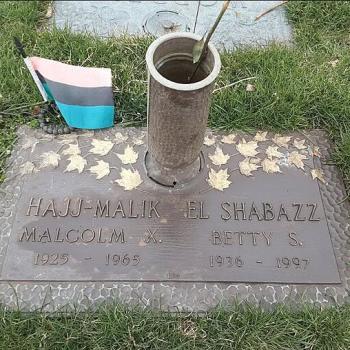 By Phyllis Tickle
By Phyllis Tickle
No short piece of commentary can hope to speak with either credibility or utility about the future of Christianity globally. Even to speak of the future of Western Christianity in so attenuated a fashion as this is suspect; but at least one has a somewhat increased hope, if not of hitting the mark, then of coming a bit nearer to it.
Whether one chooses to speak of Western culture or first-world culture or, more accurately, of those parts of the world that practice Latin or Latinized Christianity, the truth is that the cultures and societies that are so denoted pass, about every half a millennium, through times of major upheaval. Every aspect of their common life, be it economic, political, intellectual, or sociological, undergoes massive re-structuring; and that storm of pervasive change always involves, as well, a re-structuring of the forms of religion(s) that hold hegemony at the time of shift. We are in such a time now.
The upheaval or tsunami we are passing through in the 21st century is the Great Emergence; and just as the Great Reformation of 500 years ago gave us the rise of the nation-state, the birth of capitalism, the growth of the middle-class and, oh! by the way, Protestant Christianity, so the Great Emergence is giving us Thomas Friedman's flat world and the globalization of its cultures, the ‘mergonomics' of the world's economies, the non-nuclear and/or extended family as a norm, the ascendancy of information and technology as the basis of barter, and, oh! by the way, Emergence Christianity (not to mention emergence Judaism as well).
Like its most immediate sibling of Protestantism, Emergence Christianity is composed of many member parts. If Protestantism presents in real life as Baptists and Presbyterians and Lutherans and Methodists and Evangelicals, etc., so Emergence presents in real life as Emergings, Emergents, Missionals, Neo-monastics, Hyphenateds, Fresh Expressions, etc. And as was the case with Protestantism, so it is with Emergence. All the member-parts may be distinguishable one from another, but they all are held together and seen as belonging together, because they all share with one another a basic set of sensibilities, a similar world view or context, and a common mode or timbre of conversation. They all are (and know themselves to be) kindred member-parts of a new form of Christianity that is birthing now and here in the same way that Protestantism birthed from within Roman Catholicism 500 years ago.
When we set out, then, to discuss so opaque and laden an issue as the future of even just Western Christianity, we first must take care to engage without prejudice all the member-parts of the ecclesial and doctrinal mix. Given that, and because the Western Christianity of the right-here and the right-now is in the midst of so major a re-configuration, perhaps all we can responsibly do is name as predictive some two or three of the more deeply embedded characteristics of Emergence Christianity as it assumes its place beside Orthodoxy, Roman Catholic, Anglican, and Protestant Christianity and begins to react to, and interact with, them.
Whether one speaks of Emergence Christianity or of one of its member-parts, one is still referring to an entity that has been born out of the pervasive and abiding fear in our times of any institution, regardless of whether that institution is social or political or religious. When Dietrich Bonhoeffer spoke, decades ago, about religionless Christianity, he may have intended, as can be argued, something other than what is forming among us now, but that does not make him any the less prescient or his term any less applicable. Emergence Christianity, like every other part of Great Emergence society, is deeply persuaded that the institution -- any institution -- by its very nature must strive to preserve and further itself. It therefore follows that the institution -- any institution -- will always argue passionately and often monomaniacally that the greater good is best served by its own continuation at all costs. Emergence Christians, because they are dwellers in Emergence times, will argue, on the other hand, that it is the community that takes precedence, the gathered community out of which direction and order must come, the community in concert as the source of authority, except . . .
. . . except that, even while sharing that general fear of institutions, some Emergence Christians fear as well (and will continue to fear) the tyranny of the group, the risk of error inherent in unfettered immediacy, the lack of economy patent in having constantly to re-invent all the courses of life. Those who share these reservations and who wish to find some common ground between the suspect, self-perpetuating emphases of institutions and the vitality of the autonomous community will, by definition, be hybrids. As such, they can reasonably be expected to exert a considerable and perhaps aggressive influence on the question of just where authority does lie and/or is going to lie in the church of the next half-millennium. In scripture? Then what is the nature of that authority? What are its exercises and what is the existential nature of its being? With the passing of Christendom, how far into political and civil affairs does that authority verge? And how far, even, into ecclesial ones? These are the questions that will occupy the next half-to-whole century of Latinized Christianity and that will, by the way, bring it into direct conflict with its non-Latin siblings.




